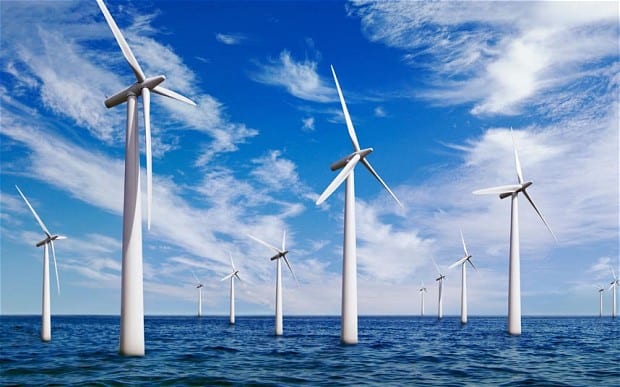Swirling autumn leaves, winter blizzards, sweet summer breezes. What if our classic New England weather could be our source of energy too? A largely untapped renewable energy source, offshore wind offers clean energy and a boost to the local economy that Massachusetts can capitalize on.
With recent international agreements and Obama’s proposed plan on climate change, the United States energy sector is at a precipice of change and opportunity. In the midst of retiring power plants, energy sources are in flux. Natural gas and renewable energy compete to takeover as major energy sources. Infrastructure commitments made today will last for 60 years, with far reaching consequences for the climate. The choices we make today are critical.
As a global issue, climate change requires global collaboration. But this starts with a local commitment to clean energy. Here in Massachusetts, we have an opportunity to demonstrate that this commitment is both feasible and beneficial. Massachusetts is already a leader for energy efficiency. And with our coastal location and classic New England weather, Massachusetts is poised to become a leader in offshore wind production as well. In August, Governor Baker of Massachusetts signed a historic energy bill with a major commitment to offshore wind. The bill commits to 1,600 megawatts of electricity from offshore wind, the largest pledge to this renewable energy source in the United States. Once implemented, this could power 240,000 homes in the state. This was a bold move considering that the infamous Cape Wind Project off Cape Cod failed after 15 years of public opposition and controversy.
The Massachusetts government is willing to gamble on offshore wind, due in large part to economic considerations. Massachusetts is 45th in total energy production and almost three-quarters of the state’s electricity generation is fueled by imported natural gas. Without local ties to the energy production, Massachusetts has the freedom to try energy alternatives. And investment in offshore wind will not only reduce greenhouse gas emissions and particulate pollution, it will also create local short-term and long-term jobs. Offshore wind can bring energy production for Massachusetts to Massachusetts.
If Massachusetts’s new commitment to wind energy is going to avoid the same fate as Cape Wind, there are some big questions that need to be answered. What lessons can be learned from the failed implementation of Cape Wind? How can a repeat be avoided in future offshore wind projects? And in contrast, what lessons can be taken from the successful European large-scale offshore wind projects and applied to Massachusetts? Are local utility companies willing to cooperate with offshore wind production companies? Achieving the offshore wind commitment outlined in the energy bill will not be simple. As the failed Cape Wind Project demonstrated, economics, politics, and public opinion complicate the process and require careful, deliberate approaches. By investigating current offshore wind technology, lessons from previous energy projects, and the political tensions of state energy, I will examine the possibilities and challenges of implementing this energy source in Massachusetts.
